Opinion
Osun: The Coup That Is Bound To Fail By Sarafa Ibrahim
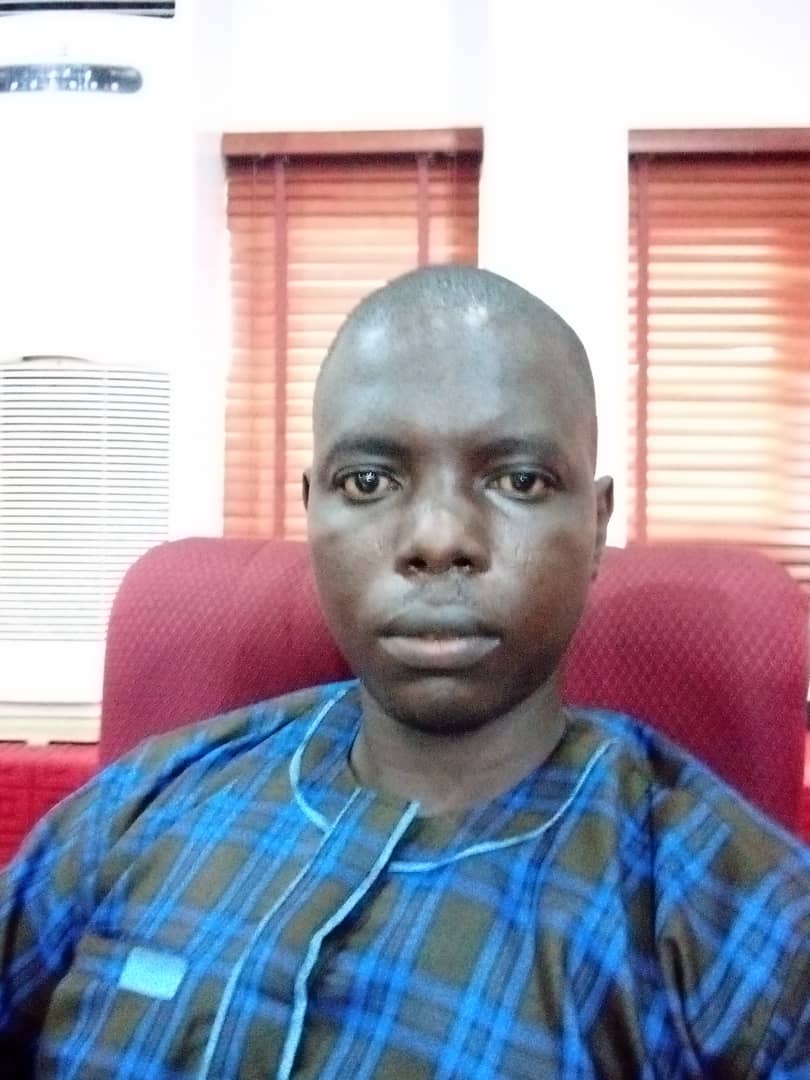
Coup is a feature very common with the military. And as we can all know quite well, it is the resort to power without the will of the people. It was so bad that Nigerians rose fiercely against it, which gave way for democracy in 1999.
Unlike the experience with the military, democracy ensures that the people are the ones who decide their leaders. Sounds good? This ideal and appealing feature of democracy is what has come under fierce attack by the posturing of the former Osun state governor, Alhaji Gboyega Oyetola and his party, the All Progressives Congress (APC).
This happened in 2018 under the cloak of ‘remote control’ and not done, Oyetola and his party is doing everything to bypass the widely accepted route to power in a democracy– the people. This is well reflected in the desperate efforts of Oyetola to undercut the results of the 2022 governorship election, and steal the mandate he glaringly lost by manipulating the judiciary.
The central effort undertaken by Oyetola was to thwart the will of the Osun people in the election. However, the basis of his claims, that is over-voting and forgery were not supported by any strong evidence as demanded by the law. For instance, Oyetola claim of over-voting in the election was primarily based on an incomplete accreditation data, which the maker, that is the Independent National Electoral Commission (INEC) made very clear before the Tribunal.
It is interesting to note that the respondents had supplied to the Tribunal the complete accreditation data and which showed clearly that the claim of over-voting by Oyetola and the APC is unfounded. Even more is the fact that documents being relied upon as evidence by the petitioners, that is the BVAS report, is an illegitimate document in the face of the law. This is because the date of certification on the document was July 27, 2022, whereas, the date on the receipts used for the payments of the documents read July 28, 2022.
The clear inference that can be drawn from the scenario was that the documents had been procured by the petitioners before it made the payment, which the most recent decision of the Supreme Court in Sokoto vs INEC held that a certified true copy of a public document can only be given a probative value if the payment date is contemporaneous with the date of certification. It is important to stress that there is no other decision by the apex court up till now that contradict that pronouncement. It is trite in law that you can not build something on nothing.
Even more is the fact that there was another BVAS report from the same back end server that seriously disputed the document presented by the petitioners. Beyond that was another separate document before the Tribunal, which is the accreditation data as extracted from the BVAS machines used in the polling units that was contested by the petitioners.
And let us not forget that the BVAS machines are the primary source of evidence for accreditation data, and contains more reliable information than the back end server, which is a secondary source of evidence, where the two conflicting BVAS reports were generated. In his submission before the Panel, the counsel for the the 2nd respondent counsel, Dr. Onyebuchi Ikpeazu, SAN, explained that given the circumstance of conflict in the BVAS reports before the Tribunal, the ideal thing is to subscribe to the Rule of Best Evidence, which in this case is the accreditation data on the BVAS machines, which are the primary source of evidence. “Only the original source of a document can prove any irregularities and in the case of this election, only the BVAS machine at the polling unit can be used to prove irregularities,” Dr. Ikpeazu submitted.
To be sure, the BVAS machines were the electronic devices used to accredit voters at the polling units, and the source of whatever data that is extracted on the back end server in far away Abuja. This makes the BVAS machines the origin of accreditation data, and any sincere interest in determining over-voting lies with it. Even more, the petitioners did not at any point challenge the veracity of the accreditation data on the BVAS machines, which makes it an incontrovertible evidence.
So Oyetola and APC claim of over-voting is scandalously thin on the law and basic facts. The condition for over-voting as clearly spelt out in the law is based on complete accreditation data, and not incomplete data as dumped before the Tribunal by the petitioner. Justice entails looking at the facts, not the flawed narratives that the petitioners tried to impose on the Tribunal.
The scenario is not so different with the claim of forgery, which is married with the non-qualification allegation of the 2nd respondents for the election. The petitioners tried to give life the issue of the documents filed with the INEC by Governor Adeleke in the 2018 governorship election despite the fact that it has been resolved by the Appeal Court, which implies judgement in rem.
For context, the Supreme Court in Yanaty Petrochemical Limited v. Economic and Financial Crimes Commission with Appeal No: SC/68/2016 held that “A judgment is said to be in rem when it is an adjudication pronounced upon the status of some particular thing or subject matter by a tribunal having the jurisdiction and the competence to pronounce on that status. Such a judgment is usually and invariably founded on proceedings instituted against or on something or subject matter whose status or condition is to be determined. It is therefore a solemn declaration on the status of some persons or thing. It is thus binding on all persons in so far as their interests in the status of the property or person are concerned. That is why a judgment in rem is a judgment contra mundum binding on the whole world-parties as well as non-parties.”
From the foregoing, it is very clear that no persons shall on whatever basis raise question on the status of the documents filed with the INEC by Governor Adeleke anymore as the Appeal Court in a judgement in 2019 clearly held that the “information in the statement of result and school testimonial presented by the 3rd respondent (Adeleke) to the 4th respondent (INEC) that the Appellant sat for the West African School Certificate Examinations in May/June 1981, at Muslim High School is true and not false.” Clear enough, the status of the documents had been validated, and there was no basis whatsoever to raise the same issue again.
And more, the Electoral Act (2022) did not entertain the provision of the previous law that a candidate can be disqualified based on filings with INEC in previous election. Section 134(3) specifically states that “With respect to subsection (1)(a), a person is deemed to be qualified for an elective office and his election shall not be questioned on grounds of qualification if, with respect to the particular election in question, he meets the applicable requirements of sections 65, 106, 131 or 177 of the Constitution and he is not, as may be applicable, in breach of sections 66, 107, 137 or 182 of the Constitution.”
So far, we have come to realize that the basis of Oyetola seeking to hijack the mandate of the Osun people are spurious and sorely wanting of relevant or reliable evidence but rather largely based on incorrect document, hearsays, irrelevant analysis and lacking facts. It would then be extremely injustice to the people of Osun people and entirely damaging to our democracy if such bid succeed.
Since democracy is about the people, it is the expectations of every observers that their wills be held sacrosanct, and not the manipulation of desperate power mongers. This is why I share in the overwhelming confidence of the Osun people that the judiciary will resist the grave attempt by someone who lost an election to impose himself on the people.
•Sarafa Ibrahim writes from Osogbo, Osun state.
-
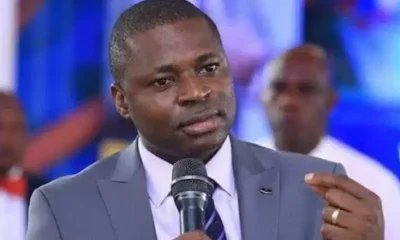
 News4 days ago
News4 days agoI’ll Rather Build Industries Than Build Mega Churches — Prophet Sam Ojo
-

 Entertainment3 days ago
Entertainment3 days agoNigerian Singer, Ifunanaya, Died After Snake Bite In Abuja
-
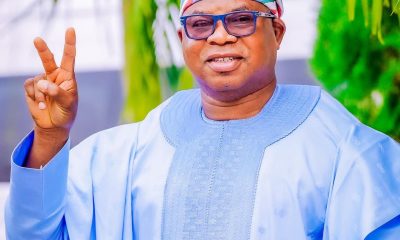
 Opinion4 days ago
Opinion4 days agoBola Oyebamiji: Beyond Skelewu Dancer: The Rising Technocrat Poised To Govern Osun State In 2026 By Wale Atoba
-

 News4 days ago
News4 days ago95-Year-Old Woman Dies As Fire Guts Residential Building In Anambra



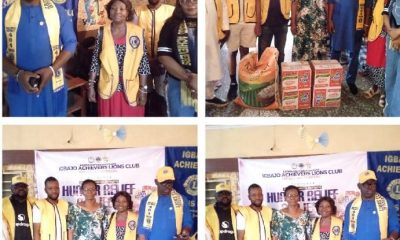

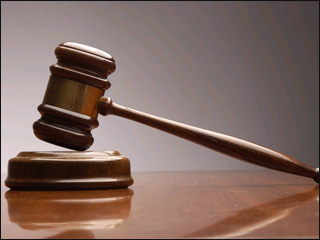
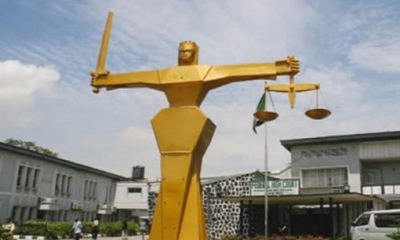



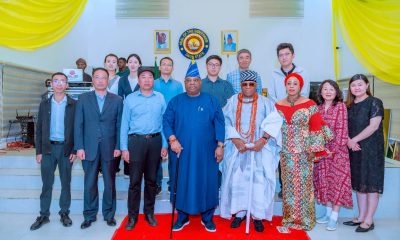



3 Comments